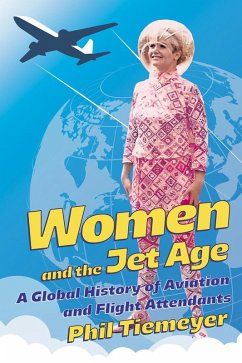
Ambassadors of Social Progress (eBook, ePUB)
A History of International Blind Activism in the Cold War

PAYBACK Punkte
16 °P sammeln!
Ambassadors of Social Progress examines the ways in which blind activists from the Soviet Union and Eastern Europe entered the postwar international disability movement and shaped its content and its course. Maria Cristina Galmarini shows that the international work of socialist blind activists was defined by the larger politics of the Cold War and, in many respects, represented a field of competition with the West in which the East could shine. Yet, her study also reveals that socialist blind politics went beyond propaganda. When socialist activists joined the international blind movement, th...
Ambassadors of Social Progress examines the ways in which blind activists from the Soviet Union and Eastern Europe entered the postwar international disability movement and shaped its content and its course. Maria Cristina Galmarini shows that the international work of socialist blind activists was defined by the larger politics of the Cold War and, in many respects, represented a field of competition with the West in which the East could shine. Yet, her study also reveals that socialist blind politics went beyond propaganda. When socialist activists joined the international blind movement, they initiated an exchange of experiences that profoundly impacted everyone involved. Not only did the international blind movement turn global disability welfare from philanthropy to self-advocacy, but it also gave East European and Soviet activists a new set of ideas and technologies to improve their own national movements.
By analyzing the intersection of disability and politics, Ambassadors of Social Progress enables a deeper, bottom-up understanding of cultural relations during the Cold War. Galmarini significantly contributes to the little-studied history of disability in socialist Europe, and ultimately shows that disability activism did not start as an import from the West in the post-1989 period, but rather had a long and meaningful tradition that was rooted in the socialist system of welfare and needed to be reinvented when this system fell apart.
By analyzing the intersection of disability and politics, Ambassadors of Social Progress enables a deeper, bottom-up understanding of cultural relations during the Cold War. Galmarini significantly contributes to the little-studied history of disability in socialist Europe, and ultimately shows that disability activism did not start as an import from the West in the post-1989 period, but rather had a long and meaningful tradition that was rooted in the socialist system of welfare and needed to be reinvented when this system fell apart.
Dieser Download kann aus rechtlichen Gründen nur mit Rechnungsadresse in A, D ausgeliefert werden.













